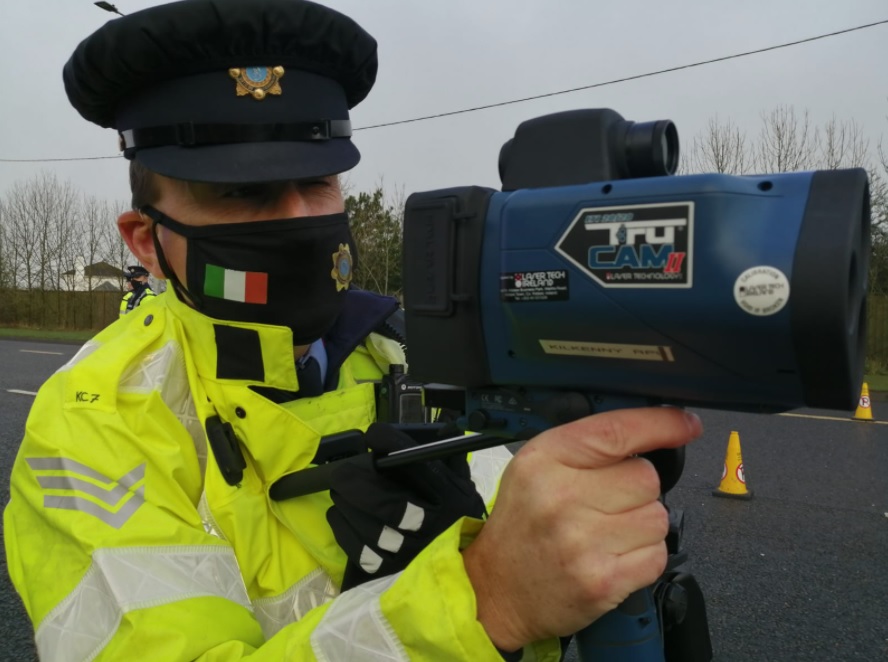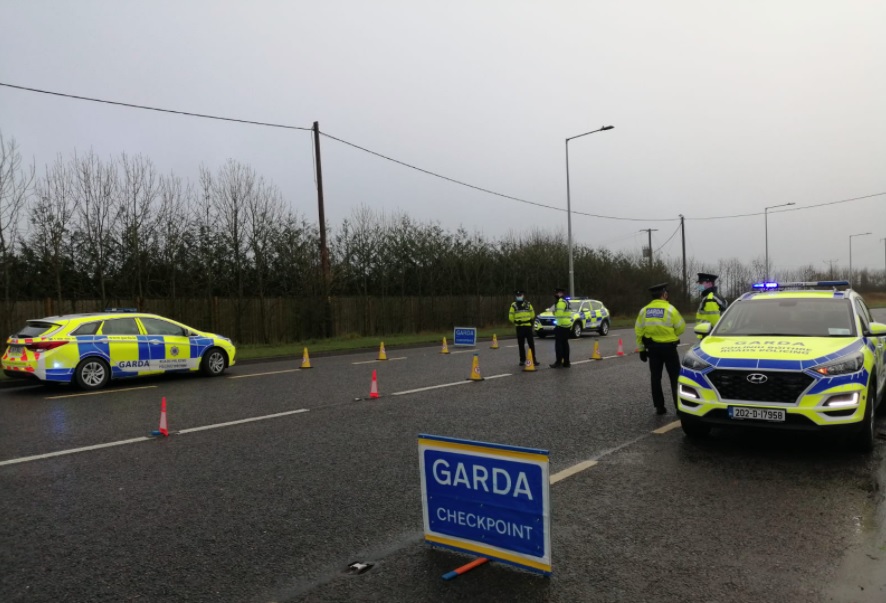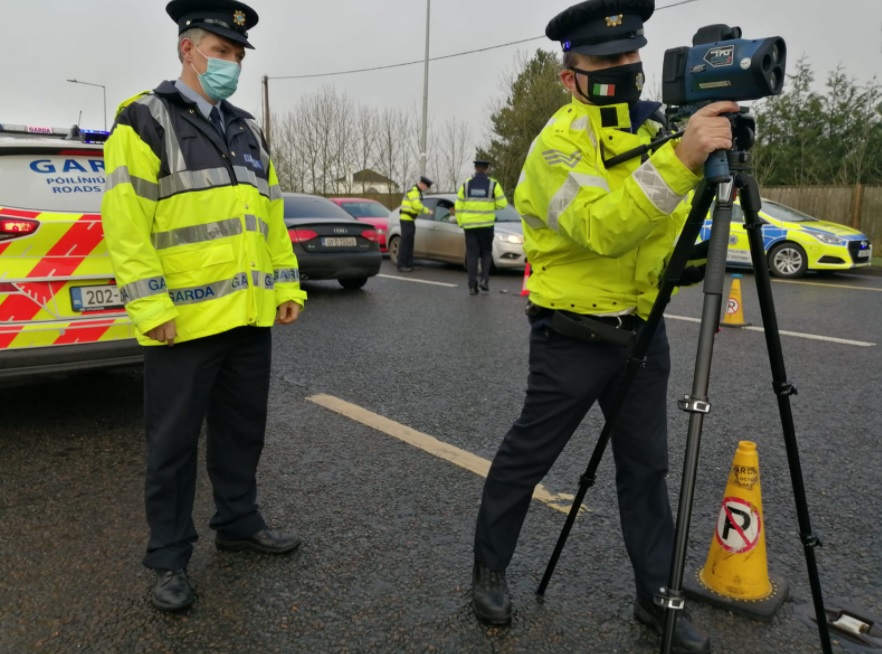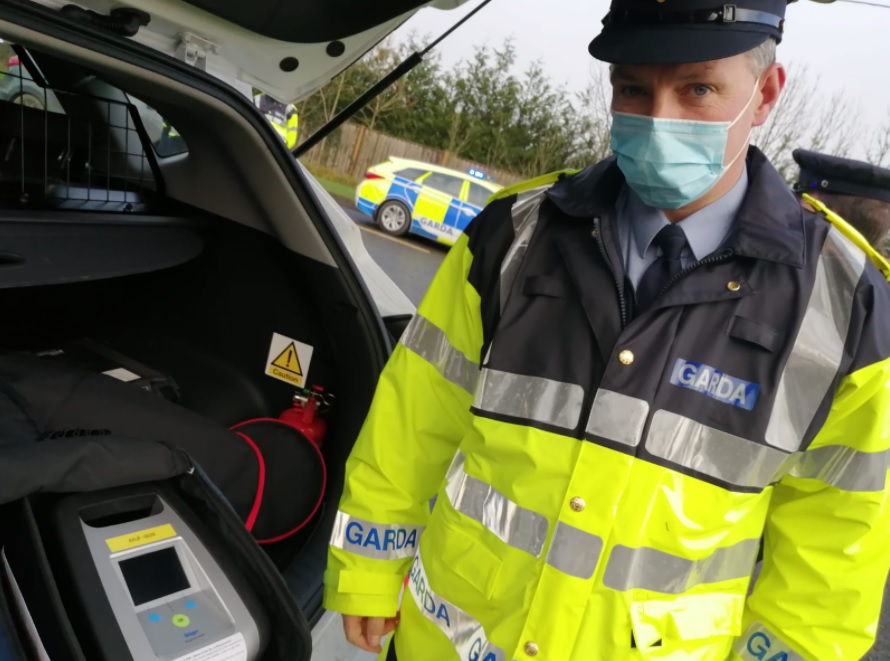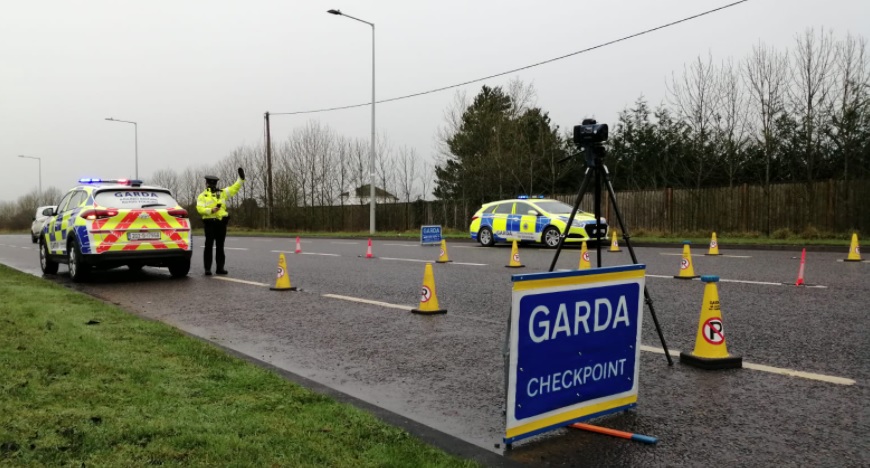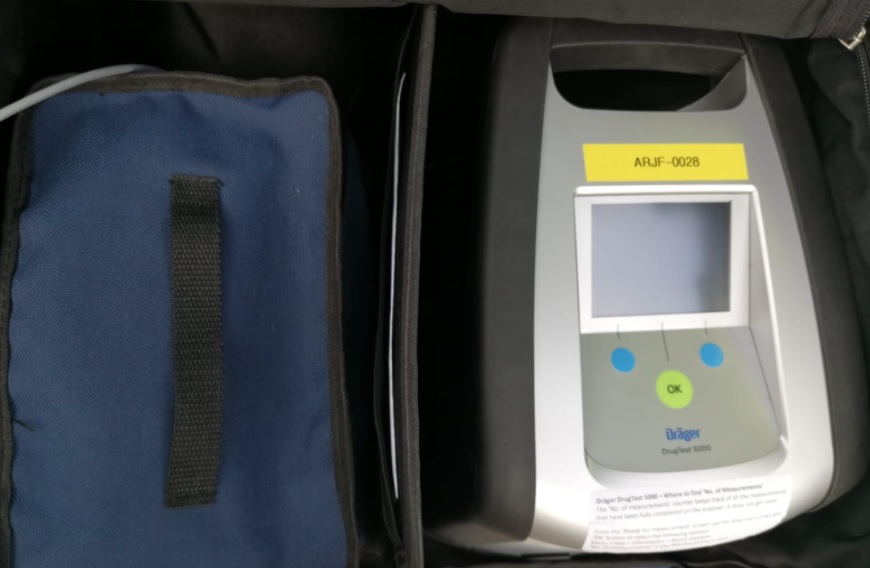Operation slowdown is in effect for the next 24-hours.
It’s part of a national speed enforcement campaign being carried out by Gardai across the country until seven o’clock tomorrow morning.
It comes after four fatalities have taken place on local roads so far this year as well as a number of crashes. In the latest just yesterday a man in his thirties had to be cut out of his car after driving off the road and into a ditch on the N-25 in South Kilkenny. (More on that here).
Also yesterday members of the Carlow Kilkenny Divisional Roads Policing unit were out on Kilkenny’s Ring Road as part of the force’s Christmas road safety campaign for which there’s a focus on drink- and drug- driving as well as speeding.
Inspector Paul Donoghue has been highlighting the main issues to KCLR News, saying “Never ever drink and drive and never ever drive under the influence of drugs that is our biggest message, reduce your speed and obviously our lifesaver offences, we’re always talking about them, which we are doing at the moment as well are people driving with no seat belts, people on mobile phones which is extremely dangerous, we have unmarked vehicles in the roads policing unit now carrying out detections for people on mobile phones”.
Inspector Donoghue adds that the first thing is to make sure your car is safe, saying “I would strongly suggest everyone check their tyres, go to your local tyre dealer, we’ve loads of tyre dealers here in Kilkenny, call into them and they’ll inspect your tyres and will tell you are they’re legal and safe for the Christmas when we have bad weather and bad road conditions so it’s vitally important that people check their tyres and brakes in their vehicles”.
Meanwhile, Gardaí say drug driving detection has increased across the country by up to 90%.
It’s come about following the introduction of new technology in the form of a mobile device that uses a saliva sample to test for cannabis, cocaine, bio diazepan and opiates.
There’s also another reason as Sgt Gary Gordon outlines “Road traffic legislation now gives us the power to actually test you for alcohol or drugs if you commit any road traffic offence so if you go through a red light we can actually do a random test for either alcohol or drugs but we are actually detecting people now who are speeding and we’re randomly doing a drug test on them and we’re getting positive results back from that, nationally we’re increasing the detections and arrests for drug-driving, but locally we’re averaging about four to five arrests for drug-driving at the moment per month”.
Sgt Gordon has been telling KCLR News that you can be tested when you least expect it, noting “If you’re involved in a traffic collision you can be tested for drugs or alcohol so that’s why we’re seeing the increase because more and more guards are being trained on the device which means that there’s more and more guards out there that can do a test which means that we will keep increasing the amount of people that we will catch who have drugs in their system and the thing about that is these drugs is that they can stay in your system for a while and can impair your driving so that’s why it’s important for us to be out there and using this device”.
He adds drivers can be asked to give a saliva sample for the roadside examine which doesn’t take too long, saying “All in all it takes about a maximum of ten minutes but the person legally has to remain at the side of the road under road traffic legislation and the intoxicated driver legislation they legally have to remain at the road, they have to give a sample the same way as the breath sample for the hand-held alcohol screening device, they have to otherwise they’re committing a separate offence which carries similar penalties actually, being having drugs or alcohol in your system so not to panic, just pull in and we’ll talk them through it”.

